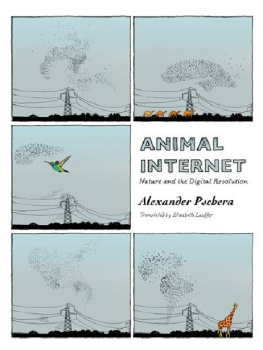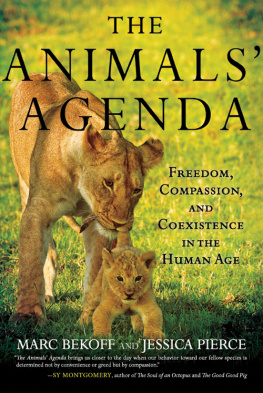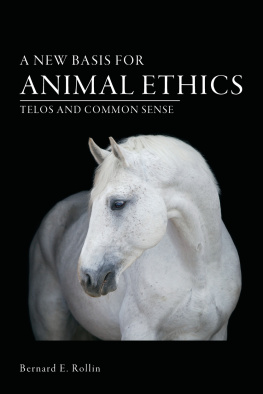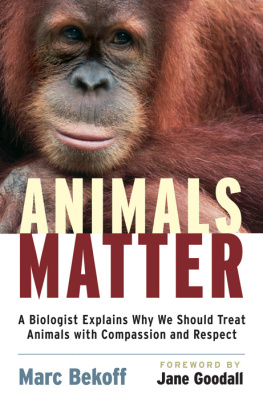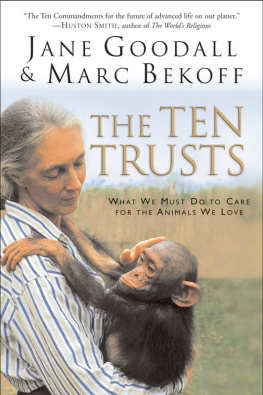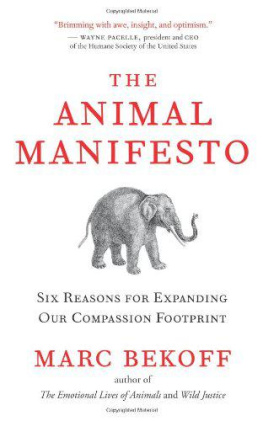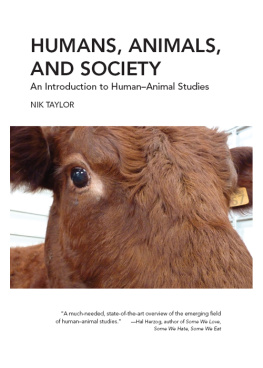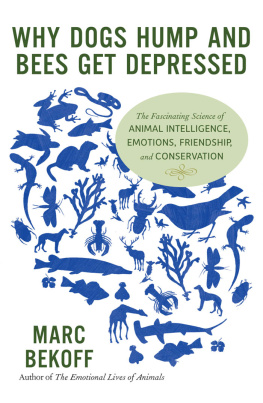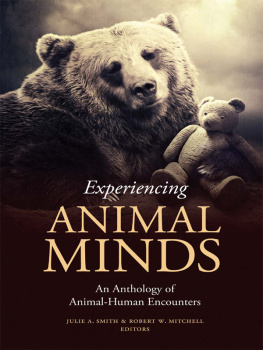ANIMAL INTERNET

www.newvesselpress.com
First published in German in 2014 as Das Internet der Tiere
Copyright 2014 MSB Matthes & Seitz Berlin Verlag
Translation Copyright 2016 Elisabeth Lauffer
Foreword Copyright 2014 Martin Wikelski
All rights reserved. Except for brief passages quoted in a newspaper, magazine, radio, television, or website review, no part of this book may be reproduced in any form or by any means, electronic or mechanical, including photocopying and recording, or by any information storage and retrieval system, without permission in writing from the Publisher.
Library of Congress Cataloging-in-Publication Data
Pschera, Alexander
[Das Internet der Tiere. English]
The Animal Internet/ Alexander Pschera; translation by Elisabeth Lauffer.
p. cm.
ISBN 978-1-939931-33-7
Library of Congress Control Number 2015950391
I. Germany -- Nonfiction
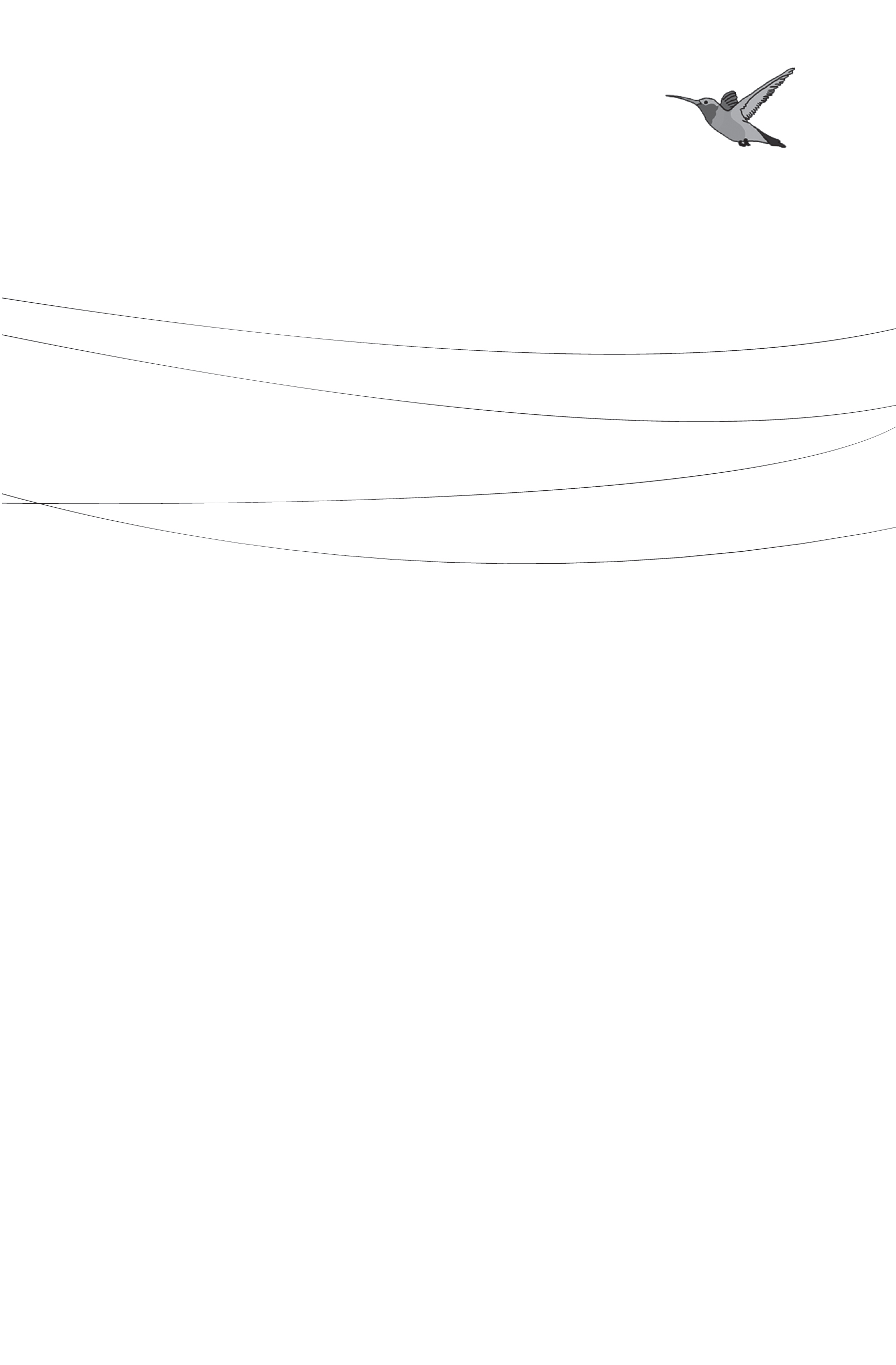
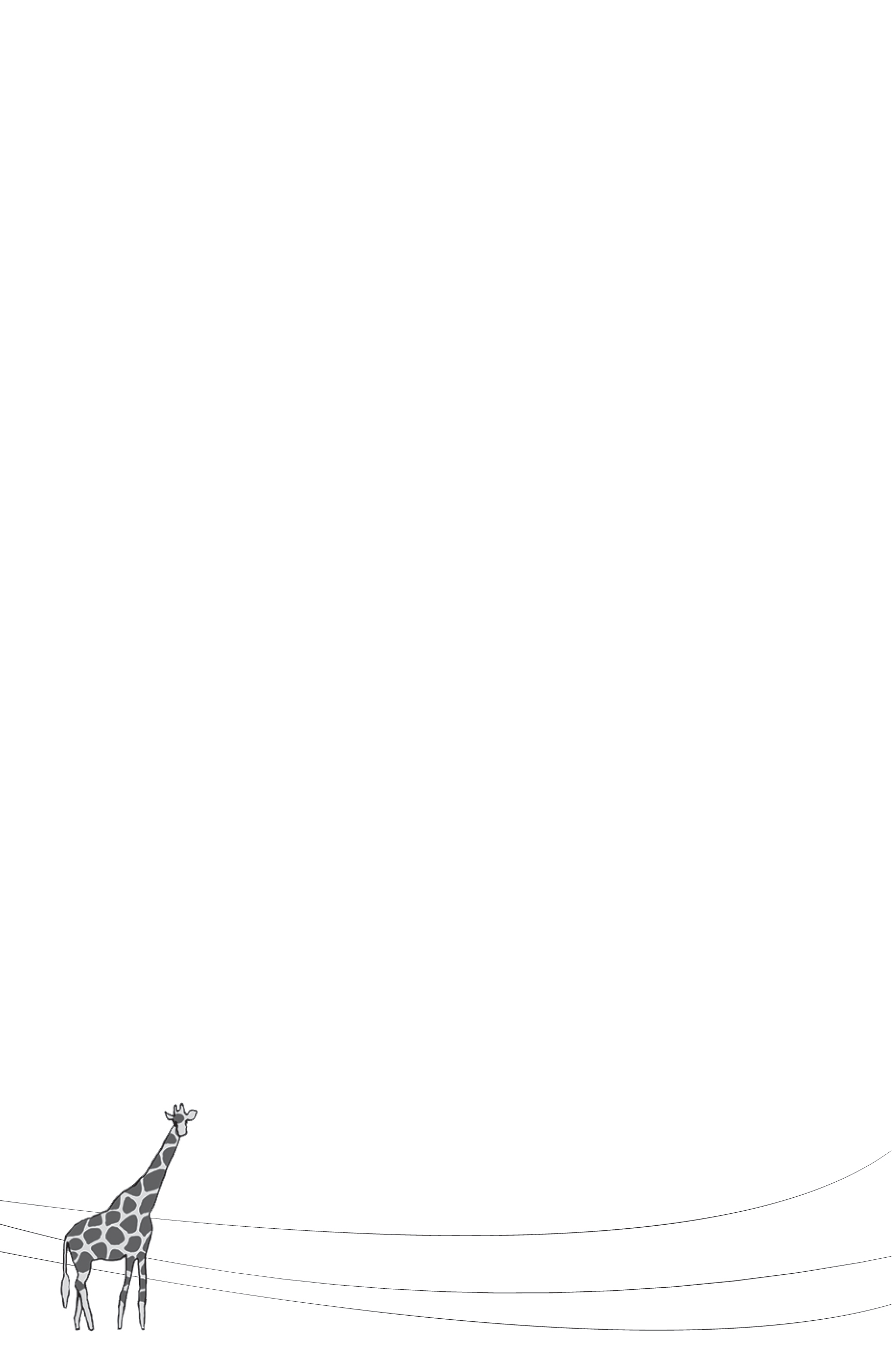
For D., C., M., and P. in gratitude
Now that they have gone
it is their endurance we miss.
Unlike the tree
the river or the cloud
the animals had eyes
and in their glance was permanence.
John Berger
TABLE OF CONTENTS
Dr. Martin Wikelski, Director, Max Planck Institute for Ornithology
FOREWORD
Every few decades, massive societal change occurs, sometimes without our being able to realize or even perceive it at the time. Walls or dictatorships fall, without anyone having seen it coming. Animal Internet brings this very kind of furtive, yet tremendous, global development to lightinvolving a total overhaul of our human understanding of nature. While nature has been conceptualized for centuries as separate from technology, the synthesis of nature and technology is currently fully underway. In the future, animals intelligent sensory systems may provide us humans with a trove of information about life on planet Earth that we need to survive. Humanity as a whole is thus being provided with a Seeing-Eye dog that will finally allow the nineteenth-century Prussian explorer and philosopher Alexander von Humboldts ideal of an understanding of nature to be realized or, as he put it, to understand the world as a whole through the interplay of its constituent parts.
Animal Internet: this is the shared, intelligent sensory network that has developed over the course of evolution, and that animals are now using to communicate with humans. This store of knowledge will become an inextricable part of the common cultural framework of humankind, right alongside libraries and museums and the Internet itself. We are in the process of incorporating a new dimension of knowledge into our liveschange like this happens once every few hundred years and is bound to cause unforeseeable upheaval. Wild animals will become our companions, like untamed and primal versions of our pets that we love and communicate with. The difference is that these wild animals will also warn us, and those humans living in the farthest flung places on Earth, of natural disasters; they will predict the climate; and they will measure chemical levels in the air, water, and soil for us.
Thus we humans will soon be in the agreeable position of understanding the world better through animal behavior, a practice shared by all advanced civilizations of the past. The fundamental improvement is that we will no longer observe only local animal behavior, like the Incas and the bristle worm in the coastal regions of Peru. The Incas used the invertebrate inhabitants of intertidal zones to forecast the weather since they started to migrate when water levels or temperatures changed. But in contrast to the pre-Columbian empire, we will essentially have a worldwide network of bristle worms, because there is no better information system than that of animals, informed as it is by the unparalleled diversity of their sixth sense.
Just as our children today cannot understand how anyone could ever have lived without the Internet, in only a few years we will not understand how humankind could have been so simplemindedand perhaps technologically arrogantas not to use the endlessly brilliant, perfectly evolved knowledge of the animal world. This book describes that fundamental change, which will be as important to our human sense of self as the discovery of life on other planets.
Dr. Martin Wikelski
Director, Max Planck Institute for Ornithology
INTRODUCTION: WHY TODAYS LITTLE RED RIDING HOOD HAS A SMARTPHONE IN HER BASKET

AN OLD STORY IN A NEW LIGHT
Little Red Riding Hood is relieved. She finally has an iPhone now, too. Sure, her mother said shes still a bit young, and her grades need to improve if she wants to keep this privilege, but the pressure from her clique is simply too great. All her friends have one, and one certainly doesnt want the girl to become an outsider.
Little Red Riding Hoods mother is a single parent, and shes at work all day. She figures its not such a bad thing for her to know where her child is. Especially since Grandmother moved to that lonely house on the outskirts of town, where Little Red Riding Hood goes most days after school for some adult supervision while she does her homework. The path she has to take goes through some woods that Mom isnt crazy about. She likes that she can get in touch with Little Red Riding Hood, and that her daughter will send her a text every now and then. Mom is also constantly reminding her to take out her headphones when shes in the woods, in order to hear whats going on around her. You never know who might be hanging around there.
But Little Red Riding Hood isnt afraid of the woods, let alone the animals that live in them. She loves the doe, the stags, the fox, and the hare. Every day she discovers something newusually off the pathwhich is why she also usually gets to Grandmothers late. But thats not a problem, because when she tells Grandmother about her new discoveries, the old woman beams with joy. For Little Red Riding Hood, animal tracks and birdcalls are messages from friends. Even the wistful dieu-dieu-dieu of the bull-finch quickens her heart, and when she sets out toward home at dusk, the intriguing who-who-who are you? of the tawny owl doesnt sound like a threat, but an invitation. It is the call of nature, and Little Red Riding Hood is more than happy to listen.
What her mother doesnt know is that this is the very reason she wanted the iPhone. She is as indifferent to texting with her friends as she is to watching those pointless music videos. But all the nature apps out there have given her an entirely new perspective on the woods. Not only can she better identify birdcalls and read animal tracks. Animal Tracker onto her phone, she now knows that Martha, the vixen living in the den near the clearing in front of Grandmothers house, has four pups. She also knows that the red kite that nests in the spruce at the edge of the clearing struck a different course in returning from its winter home this year. And most important, she knows that a beautiful, big gray wolf has been hanging around the area for days. He comes from a pack along the frontier between Germany and Poland, not far from Little Red Riding Hoods home, and his name is Ferdinand. Ferdinand the Gray, as she secretly calls him, has a GPS tracking device that allows his every move to be followed. What he looks like, what he weighs, which pack hes running with, how many children he has, and everything hes experienced on his foraysLittle Red Riding Hood can read up on all of this using her Animal Tracker account. A green dot on the map shows Ferdinands current position. She trembles at the sight of him approaching a main road or the interstate, and always hopes that hell find a safe route into the nearest woods.

